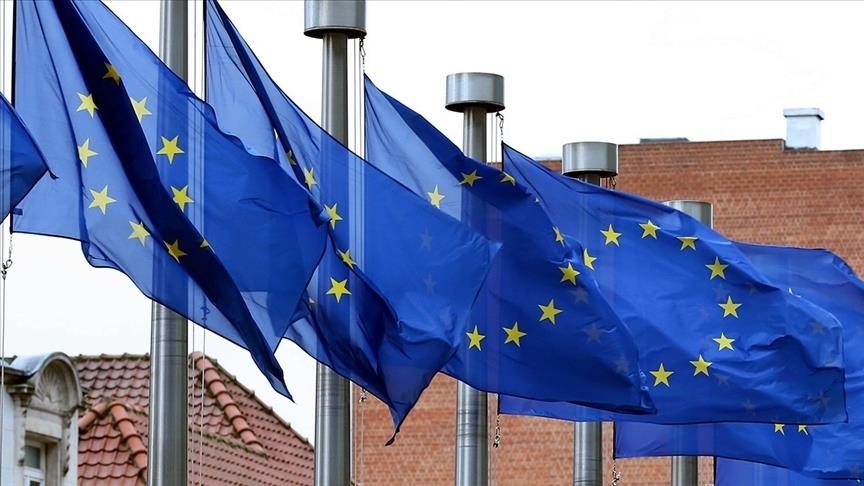EU Rescinds Decision to Halt Aid to Palestine Amid Israel-Hamas Conflict

EU Rescinds Decision to Halt Aid to Palestine Amid Israel-Hamas Conflict
In a surprising twist, the European Union (EU) has made a significant about-face on its recent announcement to suspend approximately $730 million in aid to Palestine. This decision comes against the backdrop of the ongoing Israel-Hamas conflict that has engulfed the region in violence and turmoil. The EU has now declared that there will be no suspension of payments to Palestinian authorities and that the funding is currently under urgent review.
The initial announcement of aid suspension, made by EU Commissioner for Neighborhood and Enlargement, Olivér Várhelyi, had cited “terror & brutality against Israel” as the primary reason for this drastic move. However, this abrupt reversal raises questions about the EU’s stance in the deeply entrenched and contentious conflict between Israel and Hamas, as well as its broader implications for regional stability and peace efforts.
The decision to halt aid to Palestine had drawn widespread attention and generated strong reactions from various quarters. Critics argued that it could exacerbate the already dire humanitarian situation in the Gaza Strip and the West Bank, where millions of Palestinians rely on international assistance for their basic needs. The EU’s initial decision was seen by some as taking sides in the long-standing conflict, with potential ramifications for the fragile balance of power in the region.
The EU’s sudden change of heart has left many pondering the reasons behind this reversal and what it means for the ongoing violence in the Middle East. To delve deeper into this development, we must first examine the initial decision and the factors that contributed to it.
The Initial Decision to Suspend Aid
The EU’s decision to suspend aid to Palestine was met with a mixture of support and criticism. Olivér Várhelyi, in his earlier announcement, had expressed concerns about the violence between Israel and Hamas and the security situation in the region. He pointed to what he described as “terror & brutality against Israel” as the primary reason for the suspension. Várhelyi’s statement suggested that the EU was taking a firm stance against Hamas, the militant group that governs the Gaza Strip and has been involved in numerous conflicts with Israel.
The decision to halt aid raised eyebrows and sparked debate both within the EU and internationally. Proponents of the suspension argued that it sent a strong message to Hamas, condemning its actions and advocating for a peaceful resolution to the ongoing hostilities. They contended that aid should not be provided to areas controlled by groups involved in violent conflict.
On the other hand, critics of the EU’s initial decision pointed out the potential humanitarian consequences. The Palestinian territories, particularly the Gaza Strip, have long faced severe economic hardships and infrastructure challenges. International aid has played a crucial role in providing essential services, including healthcare, education, and food assistance, to the Palestinian population. Suspending aid, they argued, would disproportionately affect innocent civilians who are already suffering from the consequences of the conflict.

The Reversal and Its Implications
The EU’s decision to reverse its stance and abandon the suspension of aid comes as a significant surprise to many. It raises several questions about the motivations and repercussions of this change in policy.
1. Humanitarian Concerns: One of the most immediate consequences of the EU’s reversal is the alleviation of humanitarian concerns. The resumption of aid to Palestine is expected to provide essential relief to Palestinians living in the Gaza Strip and the West Bank, where infrastructure and public services have been severely impacted by years of conflict.
2. Reevaluation of EU’s Stance: The EU’s initial decision to suspend aid had drawn criticism from some quarters, accusing it of taking sides in the conflict. By reversing this decision, the EU may be attempting to strike a more balanced stance, acknowledging the complexity of the Israel-Hamas situation.
3. Diplomatic and Political Considerations: It is possible that diplomatic and political factors played a role in the EU’s decision. The Middle East has a history of complex alliances and negotiations, and the EU may have recalibrated its approach to avoid jeopardizing its broader diplomatic efforts in the region.
4. International Pressure: The international community, including various humanitarian organizations and governments, may have exerted pressure on the EU to reconsider its suspension of aid. Concerns about the worsening humanitarian crisis in the Palestinian territories could have driven these appeals for a change in policy.
5. A Quest for Regional Stability: The EU’s ultimate goal may be to promote stability in the Middle East. By ensuring that basic needs are met in the Palestinian territories, it could contribute to a more conducive environment for peace talks and conflict resolution.
/cloudfront-us-east-2.images.arcpublishing.com/reuters/VWXTMEBVDJL5LOBJNYB5VEBE4U.jpg)
The Way Forward
As the EU reinstates its aid to Palestine, the focus now shifts to the broader implications of this decision. It is crucial to remember that the Israel-Hamas conflict is deeply rooted in historical, political, and religious factors, making it a highly complex issue with no easy solutions.
The EU’s role in the region, both in terms of humanitarian aid and diplomacy, is significant. Its decision to provide assistance to Palestinians acknowledges the urgent need to address the humanitarian crisis, but it also underscores the ongoing challenges in achieving a lasting peace in the Middle East.
Moving forward, the EU must continue to engage in diplomatic efforts that promote dialogue between Israel and Palestinian authorities. A peaceful resolution to the conflict remains the ultimate goal, one that requires the cooperation of all parties involved. The EU’s decision to resume aid is a step in the right direction, but it should be accompanied by sustained diplomatic initiatives aimed at fostering trust and cooperation between the conflicting parties.

In conclusion, the EU’s decision to reverse the suspension of aid to Palestine amid the Israel-Hamas conflict marks a significant shift in its approach to the ongoing crisis. While it provides immediate relief to Palestinians in need, it also raises questions about the EU’s stance in the broader context of the Middle East conflict. As the region grapples with longstanding tensions and violence, the international community will be closely watching the EU’s actions and their impact on the pursuit of peace and stability in this troubled part of the world.




